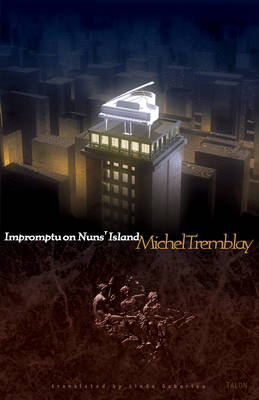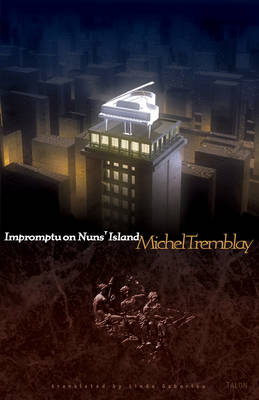
- Retrait gratuit dans votre magasin Club
- 7.000.000 titres dans notre catalogue
- Payer en toute sécurité
- Toujours un magasin près de chez vous
- Retrait gratuit dans votre magasin Club
- 7.000.000 titres dans notre catalogue
- Payer en toute sécurité
- Toujours un magasin près de chez vous
Description
An opera diva, Patricia, (almost 50) meets her Waterloo singing Salomé at the Opéra Bastille in Paris. In an impromptu get-together in her Nuns' Island penthouse, on the afternoon of her return from Europe, her mother, a popular Montreal stage and television actress (pushing 70), and her idealistic committed-to-new-work daughter (pushing 30) goad her: What is the sense of an international career if your art doesn't contribute to change (or at least to wide-spread pleasure and inspiration) in the society you live in? An international opera star lives in hotel rooms around the world, so what is the meaning (and the impact) of her art, and on what, or who's society? Is Patricia right in thinking that in this age of globalization an artist who chooses to stay home is doomed to mediocrity? These questions, this tri-generational drama, are framed by the diva's gay pianist who packs his bags and comes running to accompany her, whenever and wherever she calls.
Like all of Tremblay's plays, Impromptu on Nuns' Island is a multi-layered tour-de-force about art, life and politics from a matchless writer of tragicomic women. Grounded in the myth of the eternal return, the universal and chthonic story of the triple goddess and her androgynous male consort, this impromptu also interrogates the evolution of the role of the artist in Quebec's increasingly distinct culture and society.Spécifications
Parties prenantes
- Auteur(s) :
- Editeur:
Contenu
- Nombre de pages :
- 96
- Langue:
- Anglais
Caractéristiques
- EAN:
- 9780889224704
- Date de parution :
- 29-10-02
- Format:
- Livre broché
- Format numérique:
- Trade paperback (VS)
- Dimensions :
- 143 mm x 215 mm
- Poids :
- 127 g







